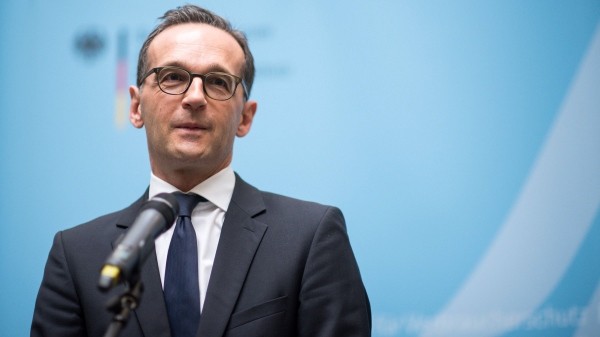dpa: [German Foreign] Minister Heiko Maas was in Warsaw on August 1 for the 75th anniversary of the Warsaw Uprising, asking forgiveness for what Germany have done to Poland. Can you personally forgive?
Czaputowicz: The speech at the Warsaw Rising Museum was a very important gesture, appreciated by the Polish society. There is a personal feeling of forgiveness. Of course there is. I come from a generation born after the war. It may be different for the earlier generation – people who lived at the time and who survived World War II. However, for my generation having peaceful relations between our countries has become a normality.
dpa: But there is discussion about German reparations for material losses in the war.
Czaputowicz: For the moment, it is rather difficult to say that this chapter is closed. In the Polish public debate, there are some estimations and expectations. There is an issue raised that allegedly during communist times Germany paid some compensation to Poland through the Soviet Union. However, at the same time Germany paid some amounts directly to Western countries. The question remains whether this was properly done. First of all, Poland was forced by the Soviet Union to pay in coal supplies for what it obtained from Soviet zone under Potsdam reparation scheme.
Secondly, what requires further consideration is the proportionality aspect. One should consider size of losses experienced for instance by France or Netherlands and size of reparation they received from Germany versus losses experienced and reparations received by Poland.
dpa: What is your opinion on that? Was it proportionate?
Czaputowicz: In my view, it was not proportionate. I discussed it with the previous foreign minister Sigmar Gabriel. I told him: Look how much you paid in total and look at the portion Poland was to receive. It was minimal. Then compare the losses other countries suffered to the ones Poland suffered. There are countries that lost many times less, but got more compensation. Is this okay? So, there are two issues here: firstly alleged transfer of some reparation through the Soviet Union to Poland, and secondly whether compensation was just. The main issue is whether Poland was treated fairly in comparison with other countries.
dpa: A parliamentary committee is working on assessing losses suffered by Poland in World War II. Once the report is out, do you plan to act on it? When will it be published?
Czaputowicz: The Polish parliamentary team attempts to assess the losses and gather that knowledge. This is part of process of learning about our own history. Therefore, it is also an internal process, not only related to Germany. It is the committee to indicate the date of finalization and publication of the report.
dpa: The Bundestag’s legal services recently declared that while Greece still has a right to demand reparations, Poland has foregone its claim in 1953. What’s the ministry’s opinion on that?
Czaputowicz: The Bundestag legal service has its opinion and the Polish Parliament has also its own legal opinion. As you know, this opinion differs with respect to conclusions. What is important for us is a lack of basic fairness with respect to the compensation paid by Germany after Second World War. Poland was discriminated in this process.
The opinion of Bundestag concerning Greece may have some important consequences for Poland. We will observe Germany dealing with claims made by Greece. However, we do not talk to Greece about that issue. There are two aspects important: legal and moral ones. Both Sigmar Gabriel and Heiko Maas say that the issue of Polish claims is closed from a legal perspective, but that the moral responsibility continues to exist.
Talking of timing, it is important to underline that following years of communism Poles needed time to learn about and accurately assess the history of their country.
dpa: In Germany a lot of people are asking why is Poland putting that issue forward now, 30 years after the Berlin Wall came down and 15 years after Poland joined the EU?
Czaputowicz: There is a belief in Poland that in the beginning of the nineties Germany pressured us not to raise that issue. This is why we return to the issue now.
dpa: So far the German government stated that the issue is legally and politically closed, so what can the Polish government do to change it. Will you put political pressure on Germany?
Czaputowicz: We are at the stage of assessing the losses, discussing with experts, waiting for the parliamentary report to be finalized. A broad understanding between our nations requires that Poles have a feeling of being treated justly.
dpa: Would Poland be ready to go to court if Germany does not move at all?
Czaputowicz: It is too early to discuss it. The courts deal only with legal aspects of the matter while this situation also requires moral and fairness consideration.
----------------------------------------------------------------------------------------------------










 Home
Home Politics
Politics










